PayBitoPro saves Sundarbans’ child education.
- March 6, 2023
- Jennifer Moore
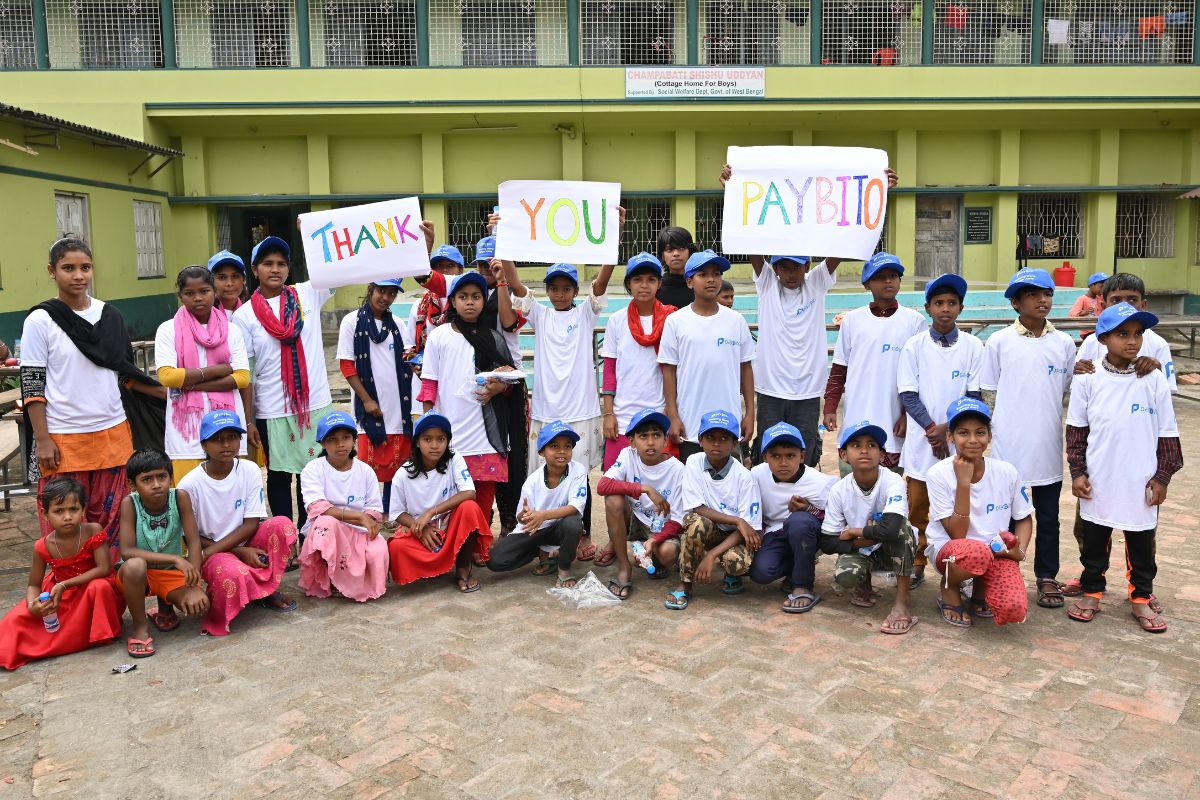
“Education is the most powerful weapon which you can use to change the world.” –Nelson Mandela
Education is a fundamental human right that every child deserves. Yet many children around the world are denied this right. This is due to infrastructure issues, poverty, and climate change. In many parts of the world, children face significant barriers to receiving a quality education due to an inadequate number of schools, poverty, lack of basic facilities, poor infrastructure, and transportation systems.
“Their dreams drowned like their books in the floods, as they watched their classrooms crumble under the weight of the storm. Children of Sundarbans are left stranded, with their futures hanging in the balance, as poverty and climate change wash away their hopes of a better tomorrow.”
– A member of the PayBitoPro Team (Brokering World Hunger Away Campaign)
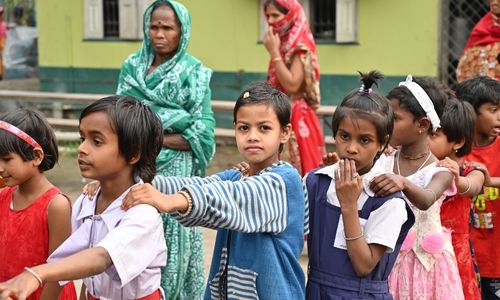
Climate change has led to an increase in natural disasters such as floods, droughts, and storms, which not only damage school infrastructure but also affect the mental and physical well-being of children. PayBitoPro team addressed that in areas such as the Sundarbans, children face significant challenges in accessing quality education due to the region’s unique geography and vulnerability to climate change.
PaybitoPro’s Efforts to Overcome Education Challenges
The schools of Sundarbans are barely standing, with most of them missing roofs and some reduced to mud puddles. The catastrophic storms that ravaged the region have taken everything, from school books to essential items. The plight of these children in getting an education is alarming, and the PaybitoPro team witnessed it firsthand during their visit as part of the “Brokering World Hunger Away” campaign.
“It’s time to take action and bring hope to the resilient communities of Sundarbans, who have weathered the worst of nature’s fury but need our support to rebuild their lives.”
–Raj Chowdhury (CEO of PayBitoPro)
It’s a race against time to salvage the talents of millions of young people whose future hangs in the balance due to a lack of opportunities. Every child, regardless of their circumstances, deserves the chance to receive a quality education. Let’s come together to make this a reality for the children of Sundarbans.
Climate Crisis: Barriers to Child Education in Sundarbans
The islands of Sundarbans have been battered by not one, not two, but four major cyclones since 2019, leaving a trail of destruction in their wake. The aftermath of these devastating storms has been catastrophic, with essential resources like education, agriculture, and livelihoods wiped out in a flash. The impact has been so severe that in certain core villages, even access to clean and fresh water has become a luxury beyond reach.
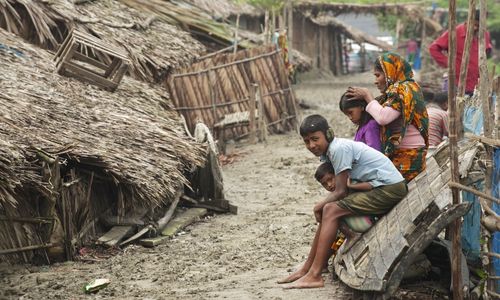
“Since the cyclone hit our island, my dream of education has been shattered. The school was taken away by the water, along with over 4000 trees and hundreds of houses including mine. It’s been a year now, and I haven’t been to school since. The damage caused by the cyclone has left us with nothing, and the lack of resources and facilities has made it impossible for me to continue my education.”
-Raju Das (8year old, Gosaba, Sundarbans)
The impact of climate change is particularly prominent in the Sundarbans. This is where frequent natural disasters such as cyclones and flooding batter away schools. This has severe consequences for the children’s education in the region, who are left with inadequate facilities and disrupted learning.
The lack of functioning schools and essential resources such as electricity and clean water further exacerbates the situation, making it challenging to receive a quality child education. Without urgent action to address the climate crisis and its impact on education, the future of the next generation in Sundarbans is at risk.
“Our Future is Dark……..”: Confessions of the Children of Sundarbans!
The children of Sundarbans, are facing a dark and uncertain future. The region heavily impacts climate change. Thereafter, it leads to poverty, poor sanitation facilities, poor education opportunities, and lack of work opportunities. Thereafter, it has led to high dropout rates among children, especially girls. The phrase “Our Future is Dark” takes on a poignant and heartbreaking meaning, reflecting the struggles and hopes of the children of Sundarbans.
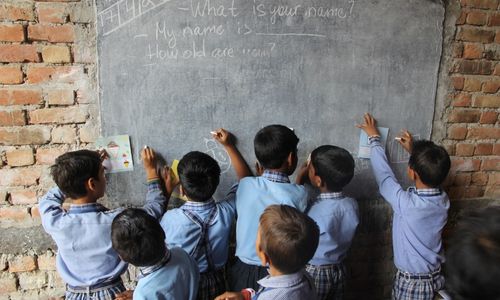
-
Lack of Clean Water and Poor Sanitation
Despite efforts to improve education access in the Sundarbans. Thereafter, major dropout rates among children between the ages of 12-17 remain a persistent problem. Eroded lands, saltwater intrusion, poverty, and damaged housing all play a role, but the lack of basic facilities such as separate washrooms, freshwater, and sanitary napkins has emerged as a significant factor. Poor menstrual hygiene practices have been acting as a major barrier to child education among girls. Without addressing these fundamental needs, we risk losing more children from the education system, contributing to the cycle of poverty and inequality in the region.
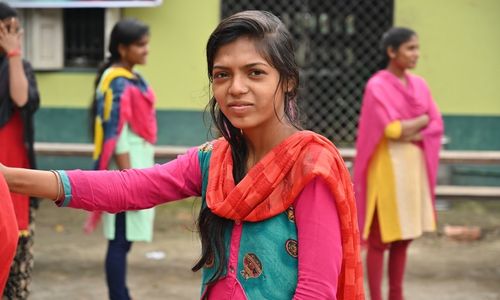
“There are no separate washrooms in my school. We use traditional clothes, soil, and sometimes cow dung during periods, which is why several girls in the village suffer from Urinary Tract Infections. The majority of the girls in the village drop out of school by the time they start menstruating. We want to change our future, but the lack of facilities deprives us of our dreams.”
-Swapna Sardar (Gosaba village, Sundarban)
The lack of clean water, separate washrooms, and access to sanitary napkins can have a significant impact on the education of girls. Without access to these basic amenities, girls may be forced to miss school during menstruation. Therefore, this can result in significant gaps in their education and a lack of progress toward their academic goals.
-
Frequent Natural Disasters and Lack of Work Opportunities
In addition to poor sanitation facilities, the Sundarbans region has also experienced a significant increase in dropout rates among boys, particularly following the cyclones and floods that have become more frequent in recent years. Saltwater intrusion destroys crops and agricultural lands for up to six years. Thereafter, many men in the village sought work in cities or even other countries to provide for their families. This lack of economic stability, along with a lack of education and access to healthy lifestyles. This has led many children to drop out of school, robbing them of the opportunity to build a better future for themselves and their families.
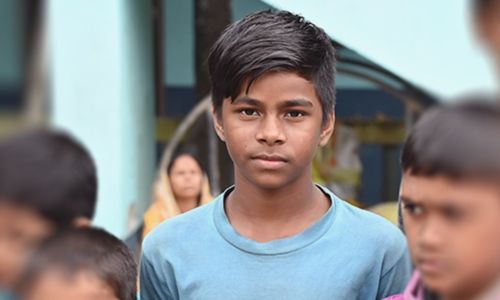
“I had to drop out of my school after cyclone Bulbul in 2019 and had to go out of the village with my parents to work in a different city. I have returned last year, but even with potential I cannot study, as the nearby high school from my village is 30kms, and my family is not financially stable to afford it.”
-Ashish Mondal (Kumirmari village, Sundarban)
The aftermath of Cyclone Bulbul forces Ashish to drop out of school. Thereafter, leaves his village to work in a different city with his family. Upon his return, the lack of a nearby high school and financial constraints continued to impede his educational opportunities. This is unfortunately not an uncommon story in many parts of the country. This is where children from disadvantaged backgrounds often have to sacrifice their education due to circumstances beyond their control. It highlights the importance of efforts to improve access to education. Moreover, support for vulnerable communities. Thereafter, to ensure that every child has the opportunity to learn and reach their potential.
The Great Divide: Education Gap Between Rural and Urban Children Widens
As the world rapidly develops and advances, the education gap between rural and urban children continues to widen. Children living in rural areas face numerous challenges. Such as inadequate infrastructure, limited resources, poverty, climate challenges, and a lack of qualified teachers. Thereafter, this ultimately hampers their access to quality education. Meanwhile, children in urban areas often have access to better educational facilities, modern technology, and a wider range of opportunities. Thereafter, led to a growing disparity in the quality of education received by children in different regions.
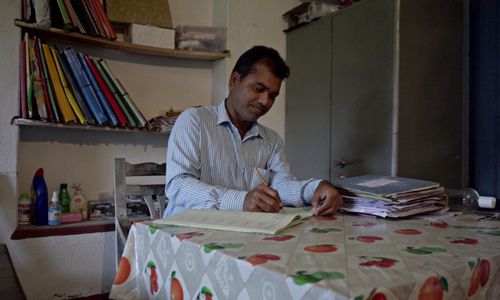
“We receive no help from the government. With the help of the Champa Mahila Society and other NGOs, our school has over four hundred children today. While this is a primary school, we help children to prepare for their secondary and higher secondary education. The basic problems our school faces is with books, and with no internet access. We are deprived of several opportunities in comparison to the children living in urban areas.”
-Swapan Ghosh (Headmaster & Founder of a local primary school, Gosaba village, Sunderbans)
Despite being the backbone of the education system, such schools often receive little to no support from the government. Thereafter, forcing them to rely on the aid of non-governmental organizations and community support. The school in Gosaba village, for example, caters to over four hundred children. Thereafter, providing them with an education that will prepare them for secondary and higher secondary studies. However, the lack of basic amenities such as books and internet access makes it difficult for these children. Thereafter, to compete with their peers in urban areas.
PaybitoPro’s Initiative: Empowering Child Education in Sundarbans
PaybitoPro recognizes the importance of education in empowering individuals and communities and is committed to making a positive impact in the Sundarbans region. To help bridge the gap in child education, PaybitoPro starts a philanthropic program to donate new books. Additionally, educational materials to schools in the area.
PaybitoPro is taking monthly sessions to teach important subjects like English, Maths, and Science to the kids. The sessions are designed to be interactive, engaging, and fun, to encourage children to develop a love for learning. To ensure that the program has a long-term impact, PaybitoPro is working closely with local teachers and educators. Thereafter, to identify areas where additional support is needed. PaybitoPro aims to create a holistic approach to education that benefits not only the children but also the wider community.
In Conclusion
PaybitoPro’s initiative is just one example of its commitment to using technology to make a positive impact. By harnessing the power of blockchain and other innovative technologies, PaybitoPro’s “Brokering World Hunger Away” movement is working to create a more equitable and inclusive world, one where everyone has access to the tools and resources they need to succeed.
Categories
- AI (6)
- Altcoins (10)
- Banking (10)
- Bitcoin (132)
- Bitcoin ETF (11)
- Bitcoin Price (30)
- Blockchain (47)
- Brokering World Hunger Away (16)
- Business (7)
- CBDC (11)
- COVID-19 (3)
- Crypto ATMs (1)
- Crypto Banking (15)
- Crypto Bill (1)
- Crypto broker platform (26)
- Crypto Investment (3)
- Crypto Markets (3)
- Crypto Payment (26)
- Crypto Prices (1)
- Crypto Trading (88)
- Cryptocurrency (365)
- Cryptocurrency Exchange (95)
- Data Visualization (2)
- Decentralized Finance (7)
- DeFi Payment (9)
- DEX (3)
- Digital Currency (22)
- Ethereum (2)
- FAQ (6)
- Finance (24)
- Financial Equality (4)
- Financial Freedom (8)
- Forex (24)
- ICO (1)
- Investment (11)
- Mining (3)
- News (64)
- NFTs (2)
- P2P (1)
- PayBitoPro (606)
- PayBitoPro Coin Listing (6)
- PayBitoPro Exchange (2)
- Post COVID Digital Transformation (1)
- Press Release (130)
- Privacy & Security (3)
- Real Estate (1)
- Stablecoin (4)
- Technology (14)
- Uncategorized (2)
- US Presidential Election (2)
- Utility Coin (1)
- Web3 Wallets (1)
- White Label Crypto Broker Solution (1)
- White Label Crypto Exchange (6)





